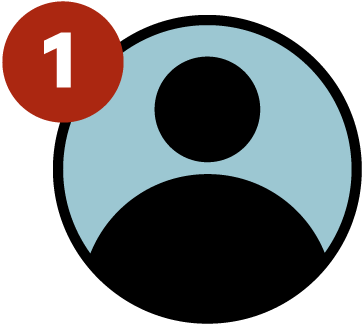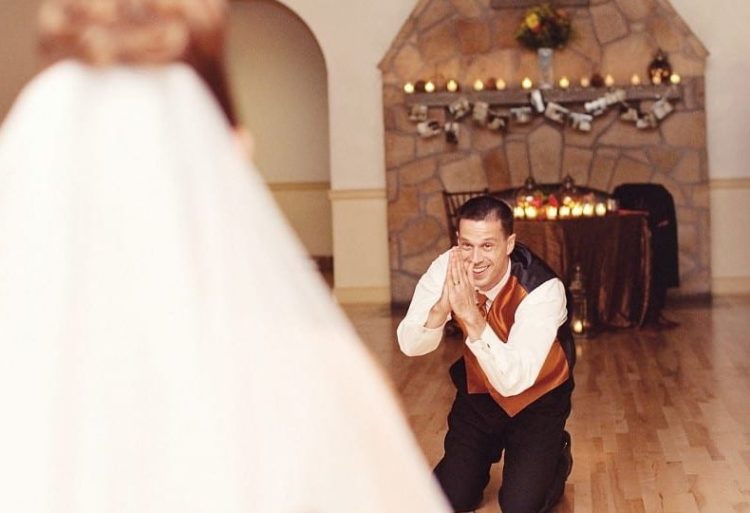
Most people think of couples counseling as something you do when things are going badly. But there’s a type of couples counseling—premarital counseling—that’s designed to help you when things are going well. Premarital counseling is a specialized therapy designed to prepare couples for marriage. During sessions with a trained professional, couples discuss everything from their sex life to the division of domestic responsibilities to long-term goals.
Some people also choose counseling in the early stages of their marriage. I was one of these people. When my husband and I were married only a few months, we signed up with a couples counselor in order to learn valuable tools to use throughout our marriage, before we ever got to the point of considering divorce. Had we not gotten married within months of knowing each other, we most likely would have signed up for premarital counseling anyway. The process has long had impressive success rates: one study from back in 2001 found that premarital counseling decreased the likelihood of divorce by 31 percent.
What Is Premarital Counseling?
Premarital counseling is often provided by licensed therapists — known as marriage and family therapists (MFTs). Common goals in counseling include improving a couples’ ability to communicate; identifying the weaknesses that may become problems during the marriage; and helping each develop healthy conflict-resolution skills. Data shows that couples who underwent some form of premarital counseling had a 30 percent increase in marital satisfaction compared with those who hadn’t.
Who is it For?
Premarital counseling is for any couple that want to start their marriage with a strong understanding of the strengths and weaknesses in their relationship. Some religions–the Catholic Church, for instance (see below)—require premarital counseling, especially if the people involved come from different faiths. Counseling can continue into the marriage, even when there is no significant problem. Counselor Susan Gamble, PsyD, told the American Psychological Association (APA) that when a couples’ session ends, she often recommends they come back for a “booster shot” in the same way that they might see their primary physician for a physical. “I like to give the message that marriage is a lifelong journey, and that you sometimes need a nonjudgmental ear to help you sort out conflicts,” she said.
What to Expect
Often therapists will have couples individually fill out a questionnaire to gauge how each partners feels about the other and the relationship as a whole. Some questions that may come up include: Why are we getting married? Do you want children? How will you resolve future conflicts? What does sex mean to you?
The Mayo Clinic lists the following as common premarital counseling topics:
- Finances
- Communication
- Beliefs and values
- Roles in marriage
- Affection and sex
- Desire to have children
- Family relationships
- Decision-making
- Dealing with anger
- Time spent together
In our sessions, my husband and I learned basics like equally dividing household chores, resisting arguing when either of us was hungry or tired, setting expectations for when and where we’d have children, and approaching sensitive topics with ease. Talking finances always made us nervous, and we aren’t the only ones; money is the leading cause of stress in relationships—who makes more, who spends more, who saves more, etc. But in the safe space of that counseling office, our reluctance relaxed until we learned that no subject—including money—was off the table.
Why Some Couples Resist Premarital Counseling
Despite the success rates, some couples avoid premarital counseling, fearful about the prospect of stirring unnecessary conflict and rehashing old wounds. Other couples just find the idea unromantic. Family-law attorney Mark Baer told the Huffington Post that while premarital counseling has the potential of creating problems, in that it encourages people to think about and discuss issues they may not have previously considered, he doesn’t necessarily see this as a bad thing. “While this can be viewed as a con, I would propose that it is also a pro because it forces the discussion before marriage, as opposed to after marriage. Why not be preventative and not reactive?”
Research from the Gottman Institute, which offers workshops, tools and training for couples’ therapists, shows that couples experiencing difficulty wait an average of six years before seeking professional help, and sometimes that’s too late. However, 10 to 15 percent of couples who invest in premarital education do decide to not get married, which is part of the reason premarital counseling effectively decreases divorce rates.
What is Christian Premarital Counseling?
Christian and Catholic premarital counseling is often required of couples being married in the church and can consist of a half-dozen sessions. A benefit of this type of counseling is the cost—most sessions are available at a low cost, or sometimes free. Churches vary in how they offer premarital counseling. For some, a pastor at a small church meets with the couple directly for their sessions. In a larger church, it’s not unusual for the couple to join other couples in a class with an established curriculum. Another option is taking weekend retreats, like the Catholic Engaged Encounter, an “in-depth, private, personal, marriage preparation experience within the context of Catholic faith and values.” During a weekend retreat away with other engaged Catholic couples, participants talk honestly and extensively about their prospective lives together, including their desires, ambitions, goals, family and their role in the church and society. The retreats are located all over the U.S. throughout the year.
Relationship Apps & Other Resources
Self-help books, DVDs, and other materials are also popular for those who do not wish to attend therapy sessions and/or who do not have access to premarital counseling. Though most sessions are done in person, there are resources available online, like Happily Ever After, a self-paced, online premarital course for seriously dating, engaged and newlywed couples. Prologue is a simple and free online tool for couples with insights from premarital counselor, teacher, and author Jeff Helton and #1 New York Times bestselling author Dr. Gary Chapman. A science-based, custom app available is Lasting, which gets to know your relationship and then builds a tailor-made program just for you and your significant other. Another popular app is Happy Couple, a free quiz-style game meant to deepen your relationship with your partner.
Where to Find Out More
Whether you choose to use an app, meet with your pastor, attend a weekend workshop or seek out a licensed MFT for counseling, the following resources might help you decide if premarital counseling is the right choice for you:
Premarital counseling is not just for couples with big issues to resolve. Even if your relationship is Barack and Michelle Obama-level strong, you’ll get a lot out of meeting with a counselor before the Big Day.

















